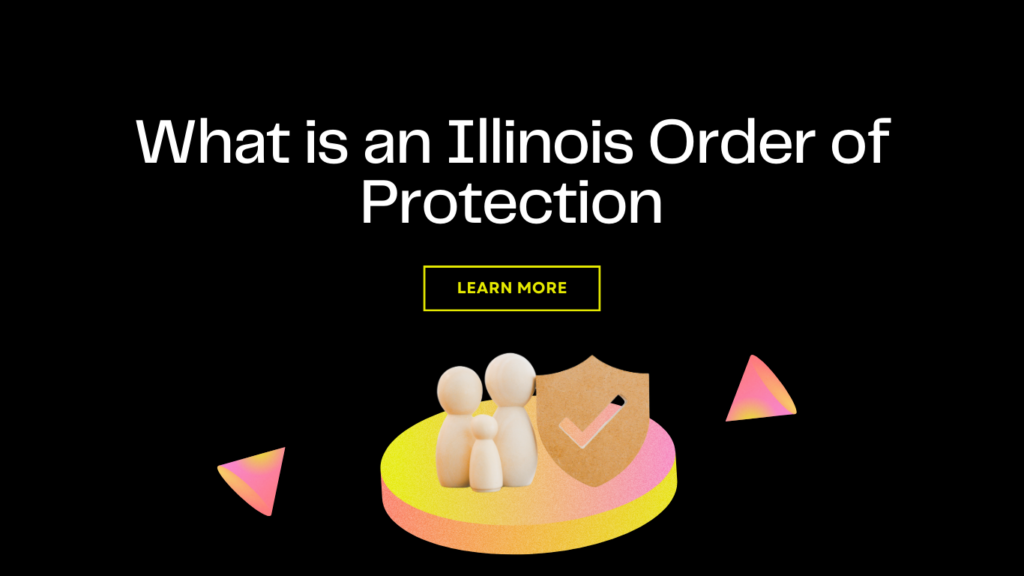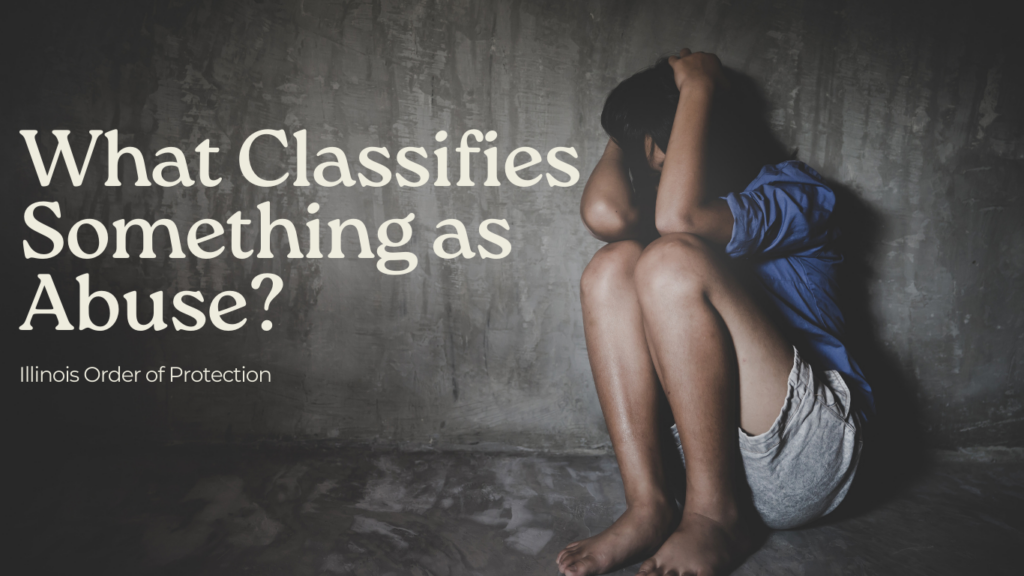An Illinois Order of Protection is a legal tool designed to safeguard individuals from abuse, harassment, or threats. This court-issued document outlines specific restrictions to ensure the safety and peace of those facing dangerous or abusive situations.
Are you or someone you know looking for a way to ensure safety from harassment or harm by someone close? The Illinois Order of Protection can set legal boundaries to protect you or your loved ones from further abuse or threats, ensuring your well-being.

If you’re experiencing abuse, an order of protection, or a restraining order, is a legal measure a court can issue to keep you safe. In Illinois, law enforcement and courts use it to stop abusers and prevent further harm. It’s a critical defense tool that can significantly impact your life, offering protection when you’re most vulnerable. Remember, seeking such an order is a step towards ensuring your safety and well-being.
In Illinois, you can petition for an Order of Protection if you or your minor child have been victims of abuse, neglect, or exploitation by a family or household member. This includes situations of domestic violence, physical abuse, harassment, intimidation, and stalking. It’s essential to comprehend the gravity of these actions and take appropriate legal steps. Seeking an Order of Protection is a critical measure to ensure your safety and well-being in the face of such threats.

Illinois Order of Protection
In Illinois, abuse can take on several forms:
– Physical abuse
– Emotional abuse
– Sexual abuse
– Exploitation
This might mean:
– Causing bodily harm
– Forcing non-consensual sexual activities
– Constant harassment or intimidation
– Even threats of physical violence that cause fear
These are considered abusive behavior and can be grounds for receiving an order of protection.
Obtaining an Order of Protection in Illinois involves filing a petition in court. Once filed and if sufficient evidence is provided, a judge may grant an emergency, interim, or plenary Order of Protection. Going through this process alone can be challenging, and it’s wise to seek the help of an experienced family law attorney. This legal support can significantly enhance the likelihood of securing the protection you need.
If an Order of Protection is violated in Illinois, the perpetrator can face criminal charges, including contempt of court, which may result in fines or imprisonment. For example, if someone with a restraining order against them sends messages or shows up at the protected person’s home, they could be arrested and face legal consequences. It’s critical to report any violations to law enforcement immediately and seek legal counsel for further assistance.
In Illinois, the duration of an order of protection may vary. Emergency orders typically last up to 21 days, whereas Plenary Orders can last up to 2 years. It’s crucial for individuals seeking protection to understand these timelines, as renewing or extending an order may be necessary for their safety.
If you’re going through a divorce, an Order of Protection can majorly affect custody and property division. Courts take abuse seriously, potentially granting the victim sole possession of the home or exclusive custody of the children based on the abuse’s severity. For instance, if one spouse has documented evidence of physical harm, the court may decide to grant them exclusive rights to the family home and primary possession of the children.
Similar to divorce proceedings, the issuance of an Order of Protection can influence child custody cases in Illinois. The court’s primary concern is always the safety and best interests of the child. If an order is issued due to child abuse or neglect, it could result in limiting or denying custody to the offending parent.
If you are served with an Order of Protection, immediate action is required. Follow the next steps:
– Make sure to read and fully understand the order details for compliance.
– Do not contact the petitioner directly or indirectly, as required.
– Collect any evidence or documents that support your case.
– Reach out to an experienced lawyer for help with responding to the order and attending court if needed.
– Think about seeking counseling or mediation if the order suggests or requires it.
It’s crucial to navigate the situation legally and responsibly. Remember, you must follow the order’s conditions as you are legally obligated to do so; any violations can result in severe consequences.
Yes, an Order of Protection can be modified or extended in Illinois. To do so, a motion must be filed explaining the reasons for the modification or extension. Legal help from a skilled attorney, like the ones at Reidy Law Firm, can ensure this process is conducted correctly and effectively.
If you or a loved one is facing a domestic violence situation in Illinois, don’t hesitate to contact the experienced attorneys at Reidy Law Office. We are here to help you navigate these trying times.
Contemplating divorce is a profound step that involves emotional, financial, and legal considerations. Our "Am I Ready for Divorce?" checklist is a sensitively designed tool that helps individuals thoughtfully assess their readiness for this life-altering decision. This resource aims to guide you through introspection and practical evaluation, ensuring that your decision to pursue a divorce is made with both clarity and foresight.
In any legal or financial undertaking, having a comprehensive and organized set of financial records is critical. Our "Financial Records Checklist" is crafted to give you the clarity and control needed to manage your finances effectively. Whether you're preparing for tax season, undergoing legal proceedings, or simply aiming to get your financial house in order, this checklist is an indispensable tool for ensuring nothing is overlooked.
Divorce not only signifies a major shift in the lives of the parents but also heralds a period of adjustment and emotional transition for the children involved. Our meticulously crafted checklist, "Do Your Kids Need Therapy After Divorce?" is a vital resource for parents concerned about the psychological welfare of their children during and after a divorce. This checklist serves as a compassionate guide for recognizing signs of distress and taking proactive steps to support your child's mental health.
Divorce can be a complex and emotionally taxing journey, but when both parties agree on the key terms, an uncontested divorce can offer a more amicable and efficient path forward. Our Uncontested Divorce Checklist is a comprehensive guide designed to provide individuals with a clear roadmap through the legal process when there are no children involved. This free resource ensures that you are well-prepared, informed, and ready to proceed with confidence.